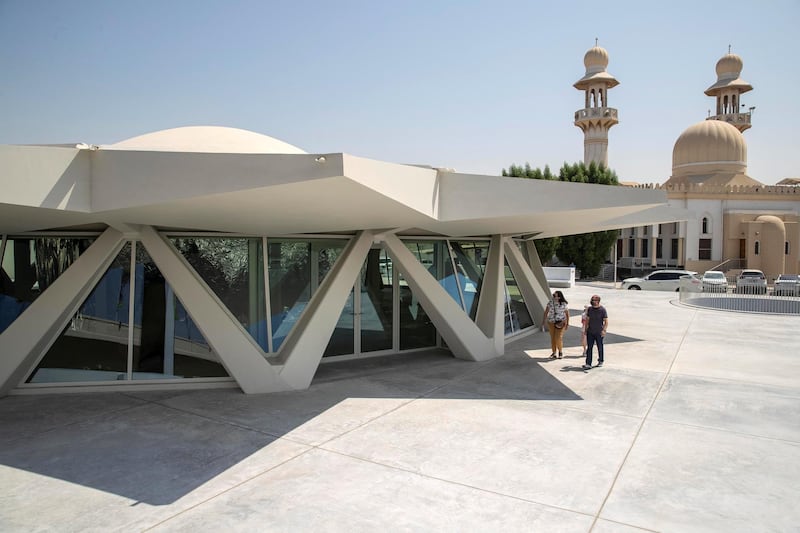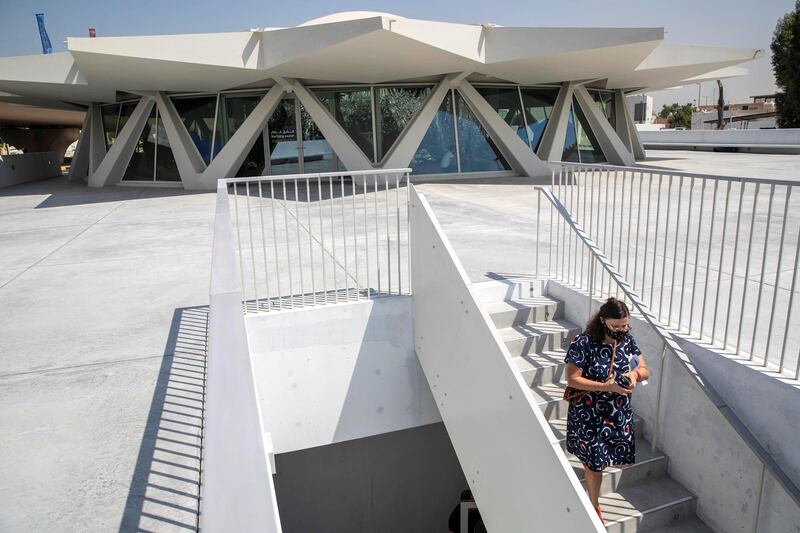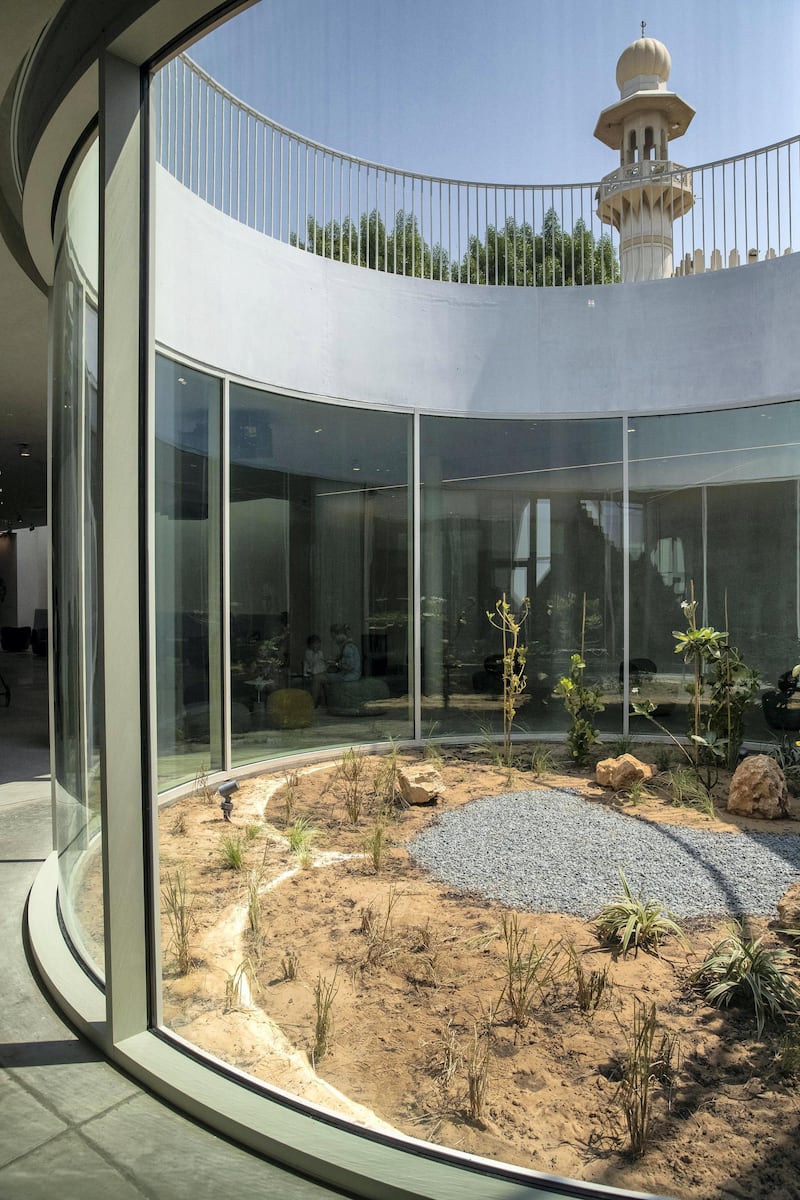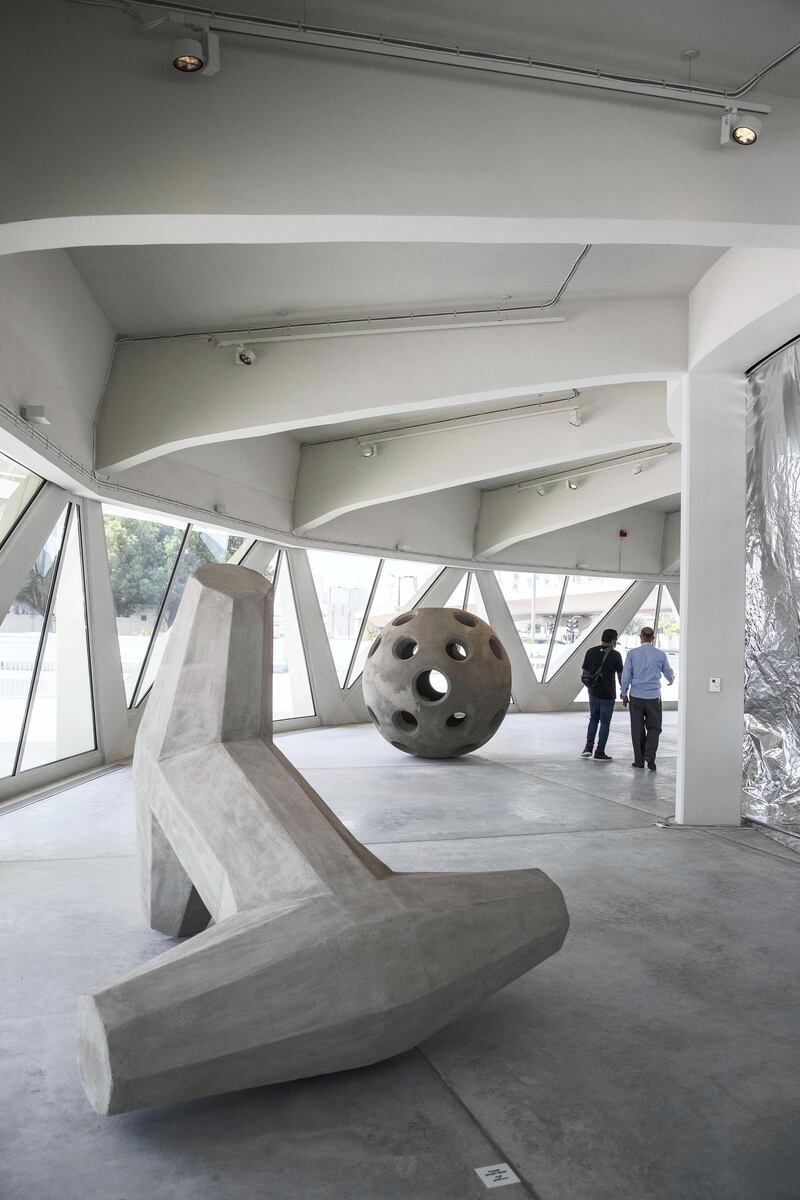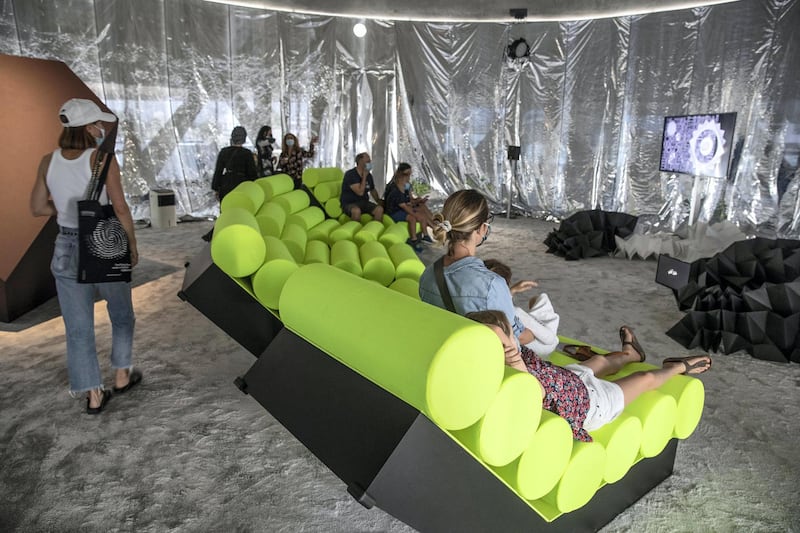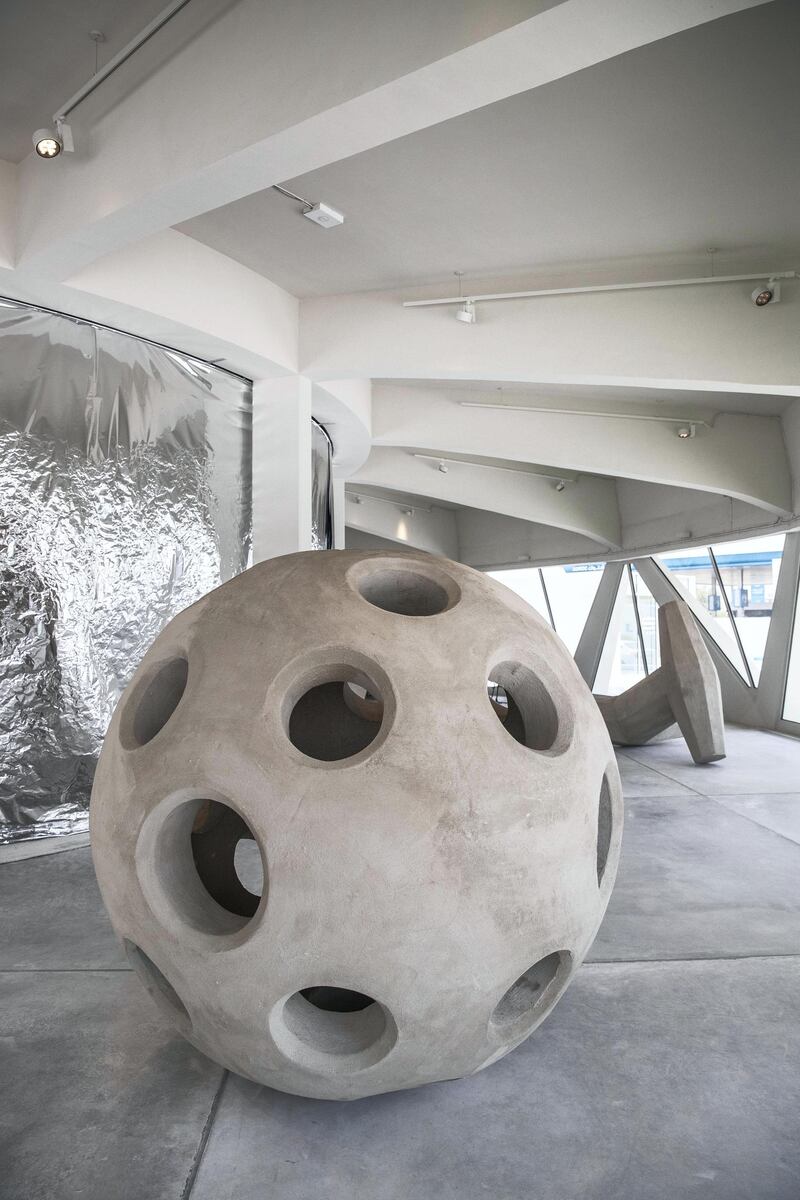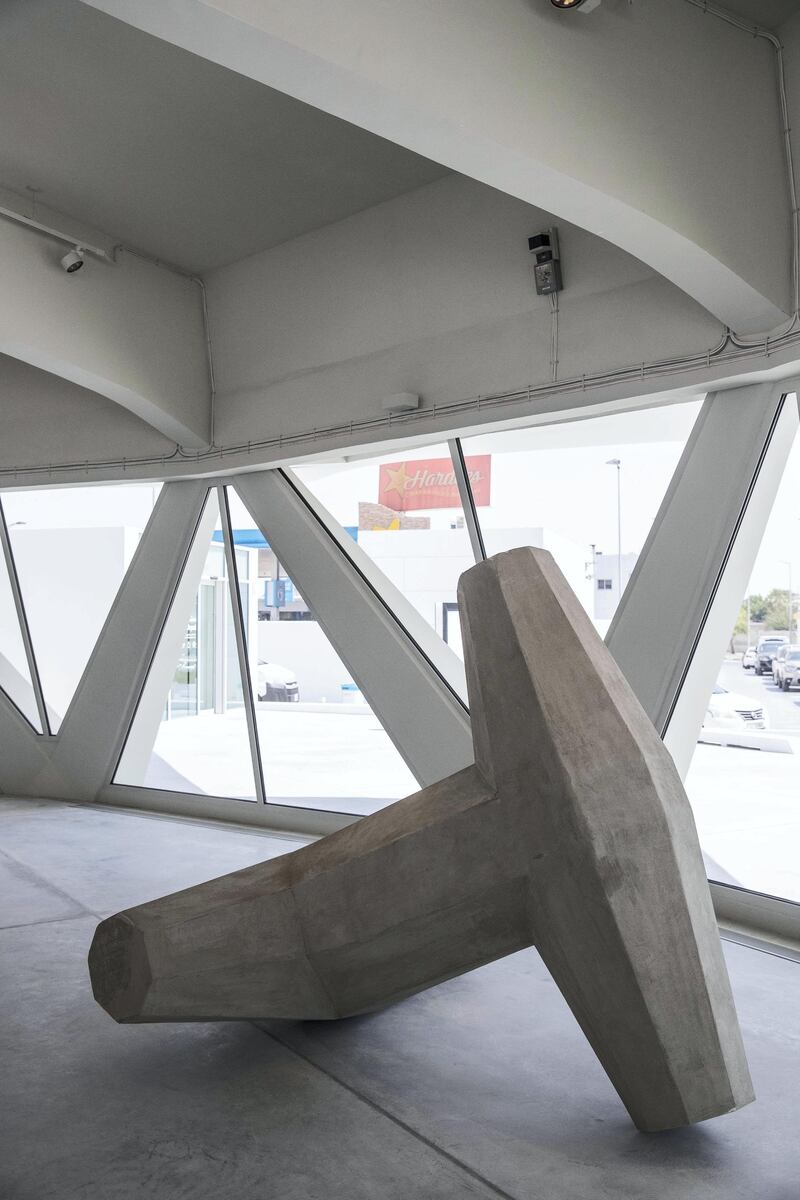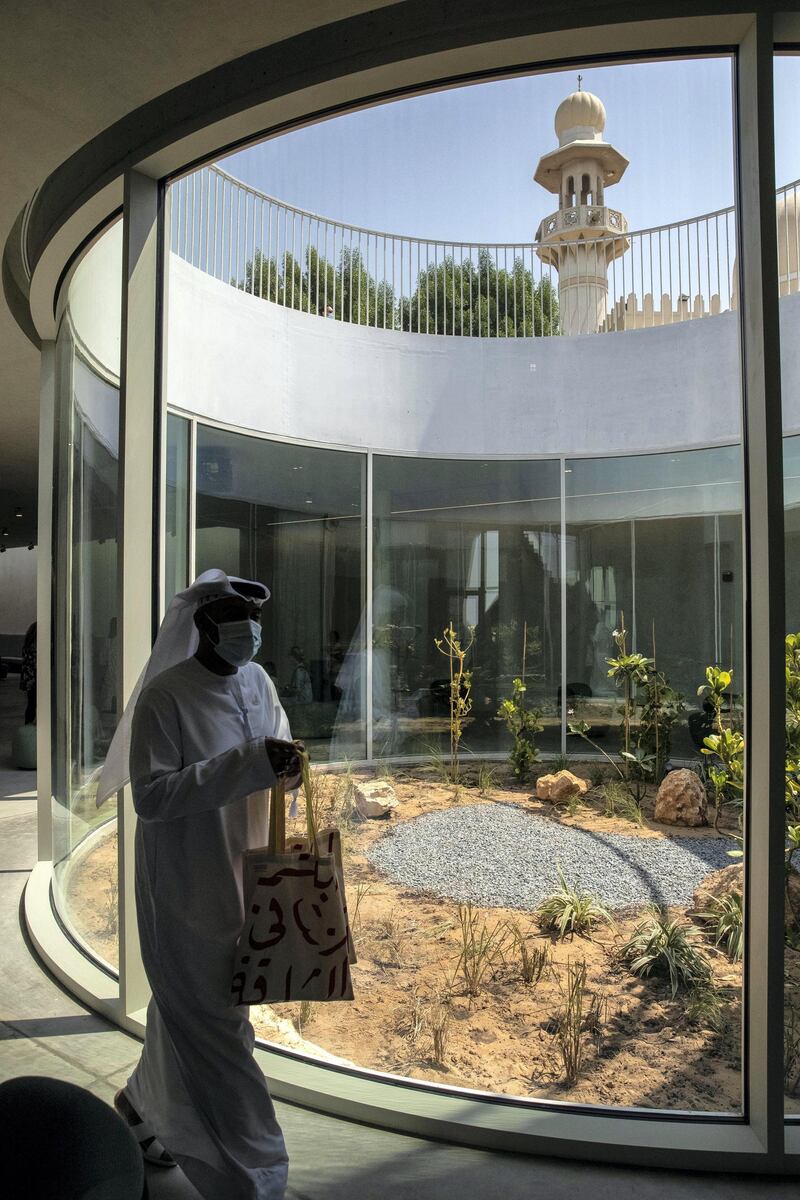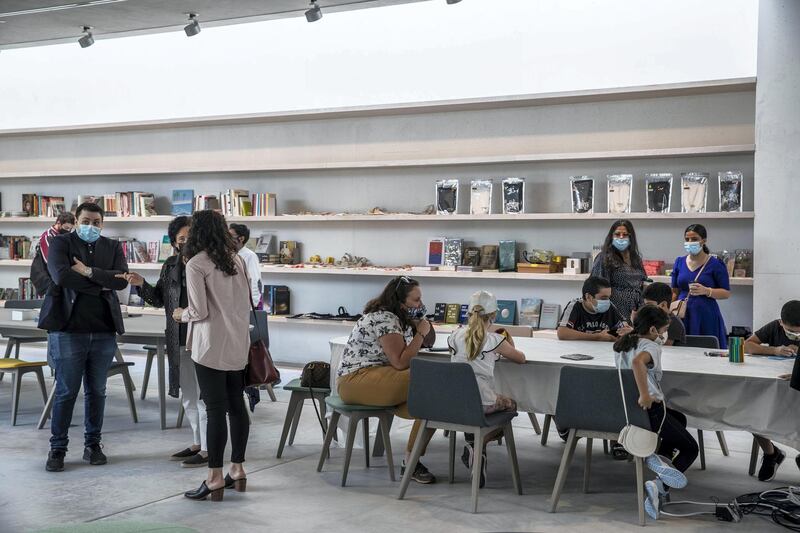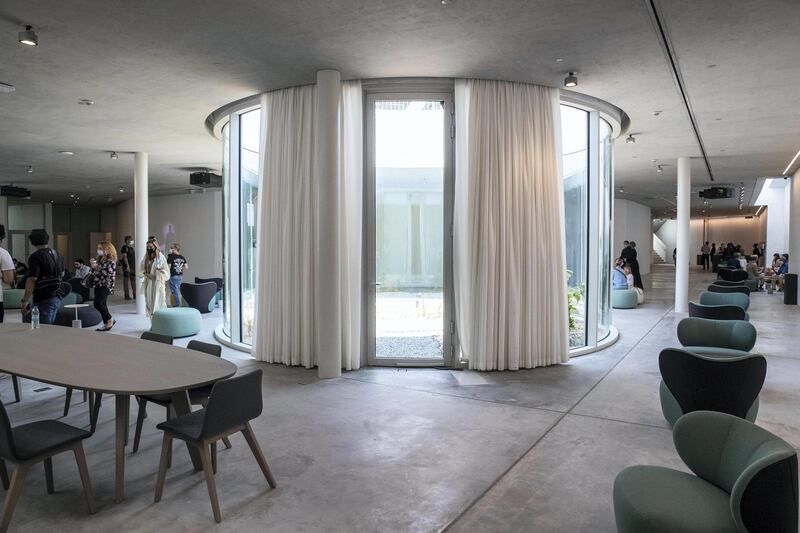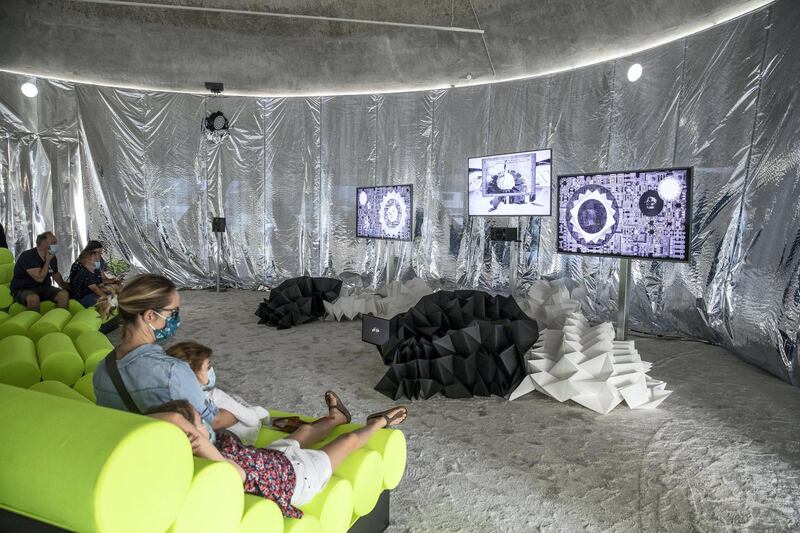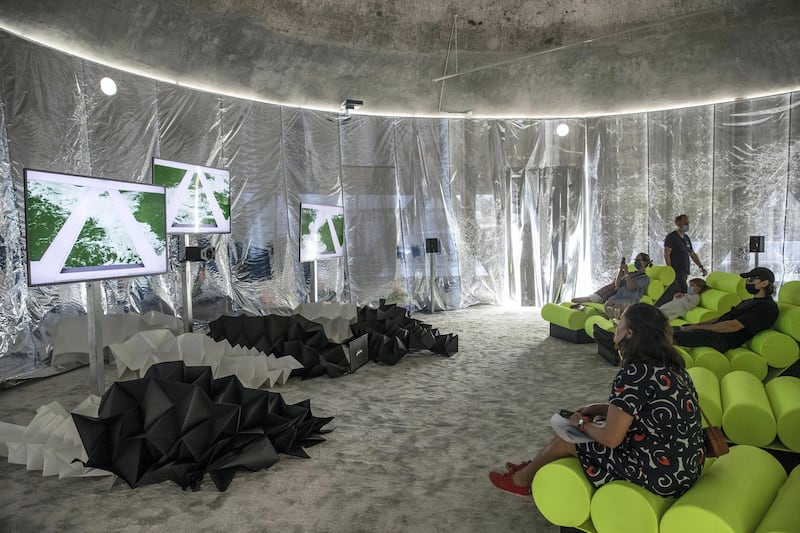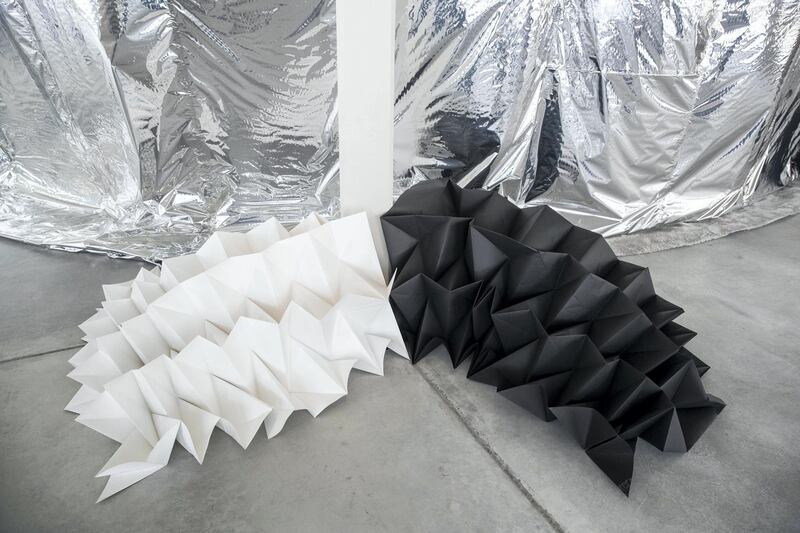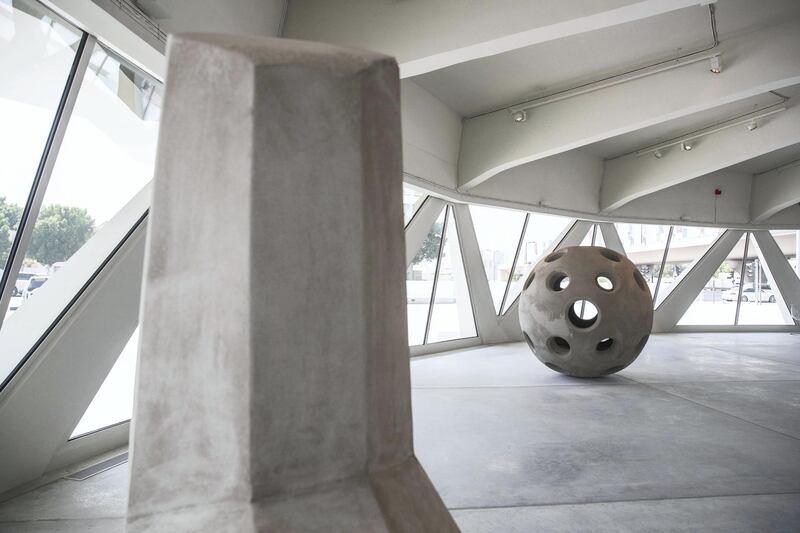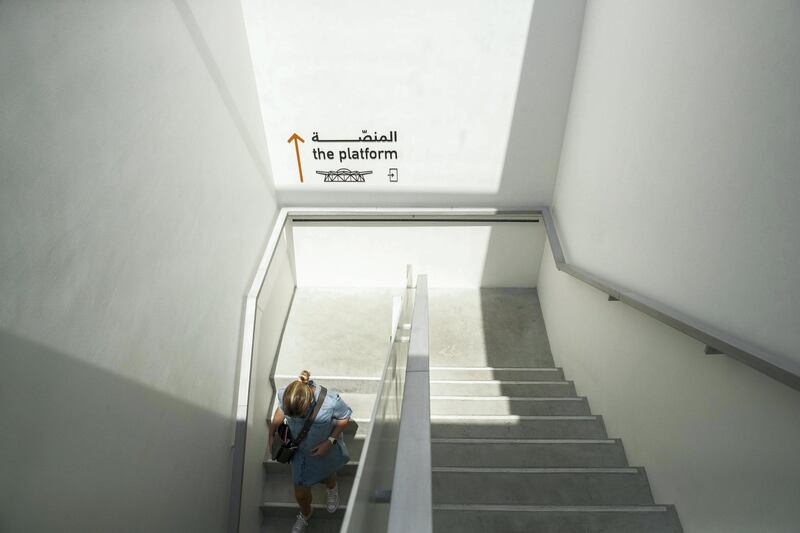After opening in 1978, Sharjah's Flying Saucer has lived many lives over many years – cafe, grocery store, fast food restaurant. Last Saturday, it reopened after a two-year renovation as an art and community space run by the Sharjah Art Foundation (SAF).
The building’s design is distinctive for its Brutalist influences and unusual appearance against the backdrop of downtown Sharjah. The circular structure has a star-shaped canopy that gives it a space-age look, along with a seven-metre-high dome that sits on top of a ring of eight columns. Its panoramic facade is supported by V-shaped pillars.
SAF acquired the building in 2012 and began making renovations to restore its original form. This included removing inner partitions and a false ceiling that had been added in earlier years, additions that obscured the view of the dome from the inside.
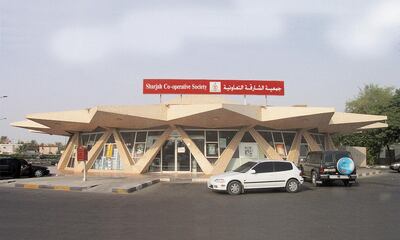
Previous owners of the building also added aluminum and metal cladding on the canopy, pillars and inside the space, cutting off its 360-degree views. These have now been stripped and the building painted all in white.
Led by SAF and Mona El Mousfy of SpaceContinuum Design Studio, the modifications were initially made to accommodate the 2015 exhibition 1980-Today: Exhibitions in the United Arab Emirates, as part of the UAE National Pavilion for the 56th Venice Biennale. The major renovation project began in 2018.
El Mousfy explains that one of the first things to go was an annex linked to the Flying Saucer, constructed as a kitchen during the time the building was a restaurant. Now, the circular structure stands alone, situated on an elevated platform that will be used as an outdoor space for events and outdoor installations.
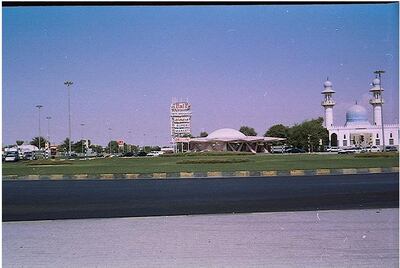
In place of the annex is one of the newest major additions, an underground community art space named Launch Pad, built underneath the structure and platform. Its size extends all the way to the edges of the site above ground.
Despite its location, the Launch Pad is bright and airy, thanks to the "green crater", a sunken circular courtyard that lets in light from above, as well as from three skylights installed along the sides of the structure.
The community area also includes a public art library – the first of its kind in the emirate – with publications from the foundation and other regional institutions, including Jameel Arts Centre. Underneath the dome is a wall panel that will be used for film screenings. The acoustics of the space have been considered as well, with speakers embedded into the ceilings to allow for sound to fill the space if needed.
Read More
[ Abu Dhabi's Cultural Foundation invites artists to apply for its residency programme ]
[ Making waves: Mohamed Melehi's Dubai retrospective is a must-see ]
[ Alserkal Lates a sign of what to expect as UAE cultural events return: 'It's not you, it's Covid-19' ]
The Launch Pad features numerous table stations designed for workshops, as well as seating areas that double as spaces for socialising and can also be rearranged for film screenings. It also includes a cafe at one of its entrances, plus enclosed pods and rooms that can be used for meetings, workshops and other activities.
The Flying Saucer itself has become an exhibition space, reopening with an installation by Lindsay Seers and Keith Sargent titled Nowhere Less Now 3 [flying saucer]. Metallic silver sheets hang from the dome to house a film installation, while large-scale sculptures resembling reef balls and dolos encircle the space.
SAF has prepared a programme of film screenings, workshops and events such as poetry readings to take place in the coming weeks, in order to bring the community into the space. Visitors can expect to attend calligraphy, photography, drawing and tile art workshops, which are all free, though prior online registration is required.
